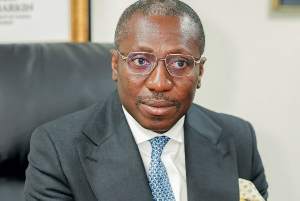Accra, Aug. 3, GNA - The Fifth Ghana Export Sector Development Forum to come out with recommendations for the review of the National Trade Policy opened in Accra on Wednesday.
The forum, which brought together researchers in export, exporters and managers, is to provide an opportunity for researchers to share knowledge with exporters and generate new ideas for policy makers.
It was organised by the DANIDA Centre for International Business of School of Administration, University of Ghana, Legon, and the Aalborg University of Denmark under the theme "Accelerated Economic Development through Export".
Mr Dan Abodakpi, Minister of Trade and Industry who opened the forum, said the export sector faces financial constraints in terms of increased cost of credit, inadequate access to credit, erosion of liquid resources and limitation of investment as a result of the free fall of the cedi.
He said the crisis of the cedi has underlined the poor performance of the export sector, over performance of the import sector and low export production.
"The donor community needs to review this position continuously with the government to ensure that, in the short-term, the development targets within the comprehensive development framework are not derailed."
The Minister said the Bank of Ghana should do more to stabilise the cedi through more vigorous, focused and responsive exchange and interest rate policy regimes.
He said government is co-ordinating and harmonising programmes, policies and initiatives to remove administrative and regulatory impediments that could undermine Ghana's attractiveness as an investment destination.
Mr Abodakpi said the Export Development and Investment Fund (EDIF) Law, which has been passed by Parliament, would ease constraints of the export sector.
He expressed the hope that the forum would examine government's approaches and initiatives and make proposals to enrich them.
Professor Ivan Addae-Mensah, Vice-Chancellor of the University of Ghana, Legon, said in a speech read for him that Ghanaians need to deal with the problems of a narrow manufacturing base, inadequate development of indigenous technology, too little added products and rising production cost.
He said the harsh economic difficulties Ghana is going through in recent times could be attributed to the fall in export revenue of the main foreign exchange earning commodities, namely cocoa, timber and minerals.
"This is aggravated by increasing expenditure on imports such as petroleum products." Prof. Addae-Mensah noted that as more countries join the Non-Traditional Export Sector (NTEs), Ghana's ability to maintain and expand its markets would hinge on its competitiveness.
"The apparent encouraging performance in the NTEs should not lull us into complacency but should make us strive to be ever more competitive in the future. After all, total annual earnings from NTEs are still below the one billion- dollar line."
Mr Emmanuel Asiedu Appiah, General Manager of the Export Finance Company, noted that no commercial bank wants to risk its money financing the export sector, hence the establishment of the Company and that efforts must be made to sustain it.
He said national attitude towards institutional building should change from abandoning the project at its teething stages because "nobody is coming to support us to go into their markets and fight them with our products".
General News of Thursday, 3 August 2000
Source: GNA












